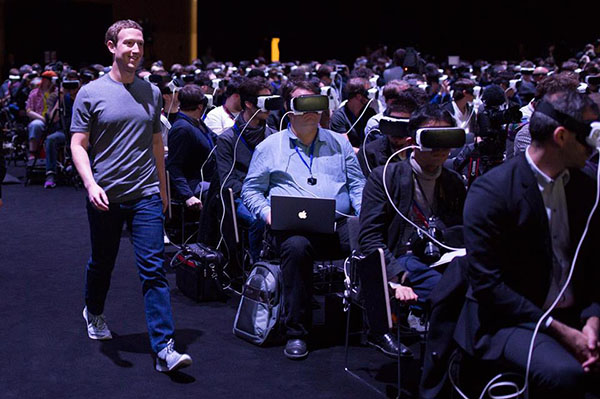HTC, Oculus and Sony will account for more than three-quarters of revenues from virtual reality headsets this year, a new report has claimed, but only have a 13 percent volume share.
Strategy Analytics described 2016 as a “pivotal” year for the VR market, although it warned that manufacturers will have to manage consumer expectations because of a dearth of content as well as the quality of entry level devices.
It predicted 12.8 million headsets will be sold this year, with sales worth $895 million. High-end headsets, which need to be tethered to PCs or game consoles, will only have sales of 1.7 million.
Strategy Analytics identified the entry level VR viewers that use smartphones as the “gateway drug” for the higher quality VR sector.
Cliff Raskind, Director of Strategy Analytics’ Wearable Device Ecosystems service, said: “Consumers will soon be exposed to an incredible diversity of virtual reality options ranging from ultra-low cost to super premium. While we expect smartphone-based viewers to take the lion’s share of VR headset volumes in 2016 at 87 percent of shipments, PC and Game Console powered headsets will absolutely dominate value share commanding 77 percent of revenues.
“Additionally, we believe VR has the potential to fuel a new tech spec race in hardware areas such as display resolution, GPUs, storage and 360° cameras.”
Virtual reality was the dominant consumer device trend of this year’s Mobile world Congress, with many stands having considerable queues of consumers wishing to test the technology.
[Read more – LG’s modular G5 trumps Samsung’s familiar S7 as MWC looks beyond handsets]
David Watkins, Director of Strategy Analytics’ Connected Home Devices service, added: “Adoption of the more expensive, high-end PC and Game Console based devices will be limited to a subset of early adopter enthusiasts and hard core gamers. The high price of these devices will act as a significant barrier to more widespread uptake.
“The PC and Console powered virtual reality market is entering the classic chicken and egg phase whereby the major games publishers are waiting on the side-lines until there are enough VR headsets and users in the market for it to make financial sense for them to build a VR library of content. This is providing independent and niche developers the chance to make a name for themselves before the big boys arrive.”
Meanwhile, Virgin Media has launched a virtual reality experience campaign, producing a short film showcasing the features of the technology. It will be available to view in store, through Samsung Gear headsets and as a 360 degree video on YouTube.



